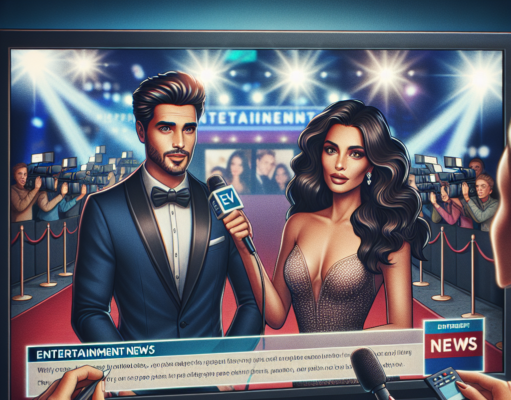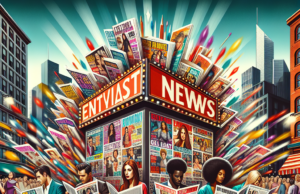Unraveling the Chaos: The Dark Side of Social Media Feuds

In an era where social media has become an integral part of daily life, the phenomenon of online feuds has emerged as a significant aspect of digital interaction. These conflicts, often characterized by public disagreements, heated exchanges, and viral confrontations, can escalate quickly, drawing in audiences and participants from around the globe. While some view these feuds as mere entertainment, they reveal deeper issues regarding human behavior, societal norms, and the ethical implications of online engagement. This article delves into the complexities of social media feuds, exploring their psychological impacts, the role of algorithms, notable case studies, ethical considerations, and potential strategies for fostering constructive dialogue.
Understanding Social Media Feuds: A Growing Phenomenon in the Digital Age
Social media feuds have become increasingly prevalent in the digital landscape, fueled by the immediacy and accessibility of platforms like Twitter, Instagram, and TikTok. These conflicts often arise from misunderstandings, differing opinions, or personal grievances, and can escalate rapidly due to the viral nature of online content. The public nature of these disputes allows for widespread participation, with users often taking sides, sharing opinions, and contributing to the chaos. This phenomenon reflects broader societal trends, including the polarization of viewpoints and the decline of face-to-face communication, as individuals increasingly resort to digital platforms to express their frustrations and disagreements.
The Psychological Impact of Online Conflicts: Analyzing User Behavior and Reactions
The psychological ramifications of social media feuds are profound, affecting both the individuals involved and the broader audience. Participants in these conflicts often experience heightened emotions, including anger, frustration, and anxiety, which can lead to impulsive behavior and regrettable statements. For bystanders, witnessing these feuds can evoke feelings of schadenfreude, empathy, or even moral outrage, depending on their alignment with the parties involved. Research indicates that prolonged exposure to online conflicts can contribute to desensitization to aggression, normalization of hostile interactions, and increased anxiety among users, ultimately shaping their online behavior and perceptions of social norms.
The Role of Algorithms: How Social Media Platforms Amplify Feuds and Controversies
Social media algorithms play a crucial role in the amplification of feuds and controversies, prioritizing content that generates high engagement—often at the expense of constructive discourse. These algorithms are designed to maximize user interaction, leading to a feedback loop where sensationalized or controversial content is promoted over more nuanced discussions. As users engage with inflammatory posts, the algorithms continue to surface similar content, creating an echo chamber effect that reinforces divisive narratives. This dynamic not only escalates existing conflicts but also contributes to the fragmentation of online communities, as users gravitate towards groups that align with their perspectives, further entrenching societal divisions.
Case Studies: Notable Social Media Feuds and Their Consequences on Public Discourse
Several high-profile social media feuds have underscored the significant consequences of online conflicts on public discourse. For instance, the feud between celebrities such as Taylor Swift and Kanye West not only captivated millions but also sparked discussions about misogyny, mental health, and the ethics of public shaming. Similarly, political figures engaging in Twitter battles have transformed social media into a battleground for ideological warfare, influencing public opinion and voter behavior. These case studies highlight how social media feuds can transcend personal disputes, impacting broader societal conversations and shaping cultural narratives in profound ways.
The Ethics of Engagement: Navigating Morality in the Age of Online Conflicts
As social media feuds proliferate, ethical considerations surrounding engagement become increasingly pertinent. Users grapple with questions of morality, such as the appropriateness of public shaming, the responsibility of influencers to model constructive behavior, and the implications of “cancel culture.” The anonymity and distance provided by online platforms can lead to a dehumanization of opponents, resulting in a lack of empathy and understanding. Navigating these ethical dilemmas requires a conscious effort to foster respectful dialogue, recognize the humanity of all participants, and consider the long-term consequences of online actions, both for individuals and society as a whole.
Strategies for Resolution: Promoting Constructive Dialogue in Social Media Spaces
To mitigate the chaos of social media feuds and promote constructive dialogue, several strategies can be employed. Encouraging users to engage in active listening, practice empathy, and seek common ground can help de-escalate tensions and foster understanding. Platforms can also play a pivotal role by implementing features that promote civil discourse, such as moderation tools, conflict resolution resources, and educational campaigns on digital etiquette. Additionally, promoting positive online communities that prioritize respectful engagement can counteract the negative impacts of feuds, creating spaces where users feel safe to express differing opinions without fear of hostility or backlash.
As social media continues to shape the way we communicate and interact, understanding the dynamics of online feuds is essential for fostering healthier digital environments. By recognizing the psychological impacts, the role of algorithms, and the ethical implications of engagement, users and platforms alike can work towards promoting constructive dialogue and reducing the chaos that often accompanies social media conflicts. In doing so, we can transform these digital battlegrounds into spaces for meaningful exchange, understanding, and ultimately, a more cohesive society.
















